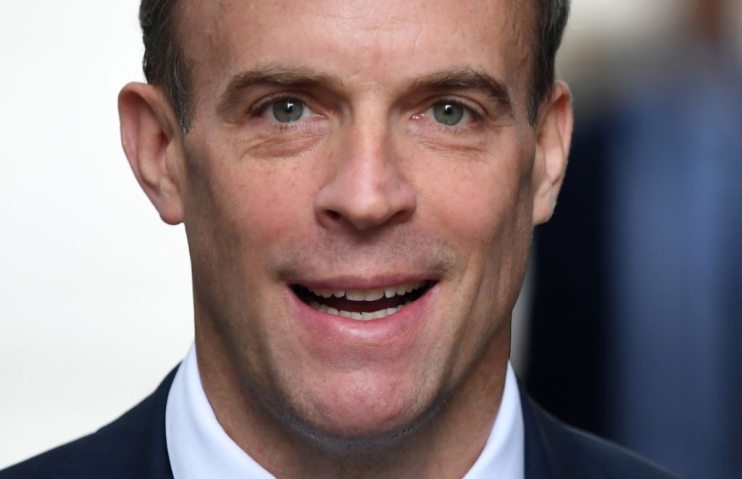Leaders are entitled to holidays but Dominic Raab’s Crete vacation was a dereliction of duty

Last week Foreign Secreatry, Dominic Raab was harangued from all sides because he was on holiday and either uncontactable or unwilling to disrupt his respite to make a telephone call to a minister in Kabul.
The question of whether or not a conversation between Raab and his Afghan counterpart, Mohammad Hanif Atmar would have made any real difference to the chaotic situation in Kabul is a separate matter. Raab’s rendezvous in Crete while Kabul was being overrun by the Taliban raises a broader issue on whether whether senior leaders, in government, business or elsewhere, should be allowed to have holidays, and what caveats should govern those.
The argument that they should be allowed time off seems unanswerable. We have spent a great deal of ink and effort since the beginning of the pandemic agonising about work/life balance, about unpaid overtime and about people burning themselves out by overwork. Yet we seem to regard that as completely unrelated to the case of ministers or CEOs. They are amply rewarded, with power or money, we think, so they are lying in a bed of their own making.
It seems obvious that the anxiety, stress and mental strain of senior positions, where some of the decisions are genuinely life-or-death, is at least as great as for the rest of us. To expect people to hold these positions and be on duty effectively 24/7 is absurd; so too is complaining or accusing when these same leaders are even seen enjoying the break they are having. As Sir Humphrey Appleby tells Jim Hacker in the ever-apposite Yes, Prime Minister, the details of summits and meetings “can hardly be left in the hands of the zonked”.
In a serious-minded and humane society, we should prize good mental health among those who hold highly pressured, responsible jobs. That means accepting that they will take holidays and be away from the office, that they will want to take a break from their work, and that they may even—pass the smelling salts—be observed having fun. This is natural and healthy, and allows them to withstand the undoubted rigours of their professional burdens.
Case closed. Except it’s not, is it?
Most of us will have been interrupted at some point by work when we are officially on leave or away from the office. It might just be a short email apologising for the disturbance and asking a simple binary question, or it might be a full-scale “Sorry but we need you in the office”. Be we ever so mighty, we are still at the mercy of Harold Macmillan’s events, dear boy, events, and it is unrealistic to think that senior leaders can be wholly insulated from a crisis any more than subordinates can be.
The truth is that, while Dominic Raab was perfectly entitled to a holiday in Crete, entitled to enjoy himself on a sunny beach, and entitled to set a high bar for his officials in judging whether to disturb him during this vacation, the headlong surrender of the Afghan National Army, the collapse of the institutions of government and then the fall of Kabul should undoubtedly have been a Code Red for the foreign secretary. His officials should have contacted him, given him the appropriate briefing, and he should not have been dilatory in cutting short his (undoubtedly pleasant) holiday and returning to the FCDO.
Yes, he will have had access to all the information required from his hotel room: modern technology is easily capable of that (as anyone who has spent the last 18 months working from home will attest). But we all, instinctively and experientially, know the shortcomings of Zoom and other remote platforms. The Foreign Secretary needed to be in the office.
Like most important questions in life, “Should I cut short my holiday?” has no simple answer and the judgement is filled with nuance. But the ability to make those judgements, to encompass all the extenuating factors and still reach a correct conclusion, should be one of the most important qualities which propels people to the top.
In Dominic Raab’s case, he should have been more open to information from London (his failure to speak to any of the UK ambassadors in the region is extremely worrying) and he should have been more decisive in realising when it was time to sacrifice his own holiday and come back to Whitehall because that was where he, as the head of the Foreign Office and, lest we forget, effective deputy prime minister, belonged.
Messaging matters, and he sent out the wrong message, of delay, dither and uncertainty. Even if that was reflective of the situation in Kabul, it was incumbent on Raab and other senior ministers to demonstrate calmness, grip and above all decisiveness. Unfortunately the Foreign Secretary failed that test.